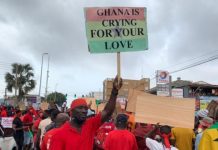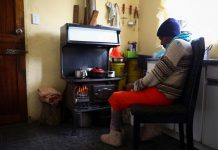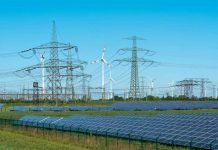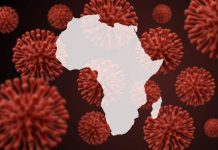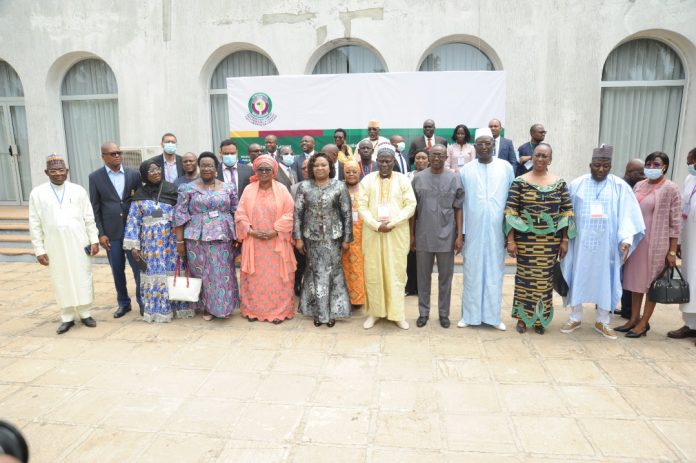The Gambian delegates to the ECOWAS parliament have revealed that the country’s economy is estimated to grow by 4.7 per cent this year.
The four-member delegation led by Hon. Billay G. Tunkara revealed this in its report at the ongoing ECOWAS parliament in Abuja.
Like other nations. the team said the Gambian economy suffered devastating impact of the coronavirus.
However, they said the country’s Bureau of Statistics (GBoS) forecasted recovery in 2021 and this year.
“The Gambian economy continues to recover from the pandemic-induced slowdown in 2020 and the medium-term outlook is favorable. Recent data released by the Gambia Bureau of Statistics (GBoS) estimated real GDP growth of 4.3 percent in 2021 compared to 0.6 percent in 2020,” the report said in part.
“Growth was supported by pickup in fishing and aquaculture, construction, and a moderate recovery in services. Notwithstanding the external shocks, the Bank’s leading indicators point to stronger economic activity in 2022. The CBG forecast higher real GDP growth of 4.7 percent in 2022, premised on strong fiscal activities related to the ongoing public infrastructure projects, continued recovery in tourism and private construction.
“The downside risks to this outlook, however, are high and uncertain, including a protracted conflict in Ukraine, COVID-19 situation and the impact of weather conditions on agriculture. In addition, global economic uncertainties and lingering effects of the pandemic have somewhat dented business confidence.
“The adverse external shocks are putting pressure on The Gambia’s balance of payments. Recovery in tourism was slower than expected as external demand weakens and re-export trade yet to recover from the effect of the pandemic due to adverse regional political developments. Exports of goods and services grew by 13.2 percent (year-on-year) but remain below the pre-pandemic level.
“Meanwhile, a more robust domestic demand and higher commodity prices have pushed up imports by 26.5 percent (year- on-year). Income receipts and current transfers (net) also declined by 18.2 percent and 13.9 percent, respectively. A combination of these factors led
to deterioration in the current account of the balance of payments from a deficit of 0.3 percent of GDP in the first quarter of 2021 to 2.3 percent of GDP in the first quarter of 2022”.
See full report below:
- Introduction
- Honourable Speaker of the ECOWAS Parliament, Distinguished Colleagues, Ladies and Gentlemen.
- On behalf of The Gambian Delegation, I convey to you all warm greetings from the Government and people of the Republic of The Gambia.
- Honourable Speaker, Distinguished Colleagues, you may all recall that The Gambia had an election on the 9th of April 2022. Following this election, two of our members have not returned. Therefore, permit me to seize this opportunity to introduce to you all the composition of our delegation. They are:
- Billay G. Tunkara – Head of Delegation
- Alhagie S. Darbo – Member
- Kebba K. Barrow – Member
- Fatoumata Njai – Member
- Samba Jallow – Member
- Honourable Speaker, Honourable Members, on behalf of the Speaker of the National Assembly of The Gambia and Members of the Sixth Legislature, we want to extend our sincere gratitude to the ECOWAS Community for coming to The Gambia to observe the electoral process.
- By and large, the delegation of the National Assembly of The Gambia is pleased to extend its compliments to this august plenary and has the honour to present to the Community Parliament its Country Report.
- The report borders on a host of issues which include the political, economic, security and human rights situation of the country, as well as the implementation of community texts and protocols among others.
The proliferation of private radio stations and newspapers, private television stations, and a host of political discussion and campaign programs, especially as we have seen in the race towards our legislative elections conducted on April 9, 2022, are a collective testimony of the government’s resolve to uphold Freedom of Expression of the people as guaranteed in the 1997 Constitution of The Gambia.
- The government of The Gambia under the leadership of President Adama Barrow has formulated a comprehensive National Development Plan (NDP) 2018-2021 that includes eight strategic priorities:
1) continued reform to support good governance and human rights
2) economic stabilization and growth
3) modernization of agriculture and fisheries
4) investment in people and social services
5) infrastructure development
6) promotion of tourism for sustainable growth
7) investment in youth, and
8) leveraging the private sector for growth.
- However, a comprehensive review has been made of the above plan, and a new National Development Plan is being formulated and just waiting for validation.
- The COVID-19 pandemic did not induce any adjustments of the NDP’s strategic priorities but created additional challenges to their implementation.
- In the exercise of our civic rights, Gambians had gone to the polls on the 9th April 2022 to contest for the legislative elections and to elect members from their constituencies to represent them in the National Assembly.
- After a thorough scrutiny of candidates from independent and several political parties by the Independent Electoral Commission (IEC), the elections were largely peaceful and have been described by both domestic and international observers as free and fair.
- Table 1: Summary of the Legislative Elections Outcome in The Gambia, 2022.
| PARTY | NO. OF SEATS WON |
| NATIONAL PEOPLE’S PARTY (NPP) | 18 |
| UNITED DEMOCRATIC PARTY (UDP) | 15 |
| INDEPENDENT CANDIDATES (IND) | 12 |
| NATIONAL RECONCILIATION PARTY (NRP) | 4 |
| PEOPLE’S DEMOCRATIC ORGANIZATION FOR INDEPENDENCE AND SOCIALISM (PDOIS) | 2 |
| ALLIANCE FOR PATRIOTIC REORIENTATION AND CONSTRUCTION (APRC) | 2 |
- After the elections, the President nominated five [5] members to the parliament in accordance with section 88(b) of the Constitution of the Republic of The Gambia, 1997. So, in total, the number of National Assembly Members is 58, with 53 directly elected and 5 nominated.
- The Security Sector Reform Policy has already been validated and the implementation has started, but it is a process. Some of the reforms are immediate while others have to be implemented over a medium and long term period.
- Overall, it is expected that the reform will transform the country’s security sector into an effective, vibrant and professional force capable of defending the supremacy of the Constitution at all times.
- There are ongoing security concerns linked to transnational actors in and outside The Gambia. These include the conflict in the neighbouring Casamance. As recently as November 2021, the main Casamance rebel faction (MFDC) reportedly threatened The Gambia with an attack if the country supports the Senegalese government’s efforts to annihilate their operations in the region.
- The intervention force, ECOMIG, deployed by the Economic Community of West African States (ECOWAS) after the standoff following the 2016 presidential election, remains in the country at the request of The Gambia government. Part of the rationale for the repeated renewals of the ECOMIG mandate is to allow it to support the Gambian government in the fight against transnational crime (including not just drugs and timber).
- It is comforting to report to this august assembly that the National Human Rights Commission (NHRC) of The Gambia continues to take concrete steps towards laying a solid foundation for the respect, protection, and enjoyment of fundamental human rights and freedoms in the country.
- Human rights education, which of course is the foundation block in the building of a culture of human rights in any human society, has been championed through an annual Human Rights Moot Court Competition organised by the Commission. Also, late last year (2021), the Commission launched an unprecedented study that seek to see the integration of human rights in the basic and secondary education curricula.
- The Truth, Reconciliation and Reparations Commission (TRRC)
- The Truth, Reconciliation and Reparations Commission (TRRC), established in 2018 to investigate the human rights violations and abuses committed during the 22-year rule of former President Jammeh (1994 – 2016), has in November 2021, submitted its final report to the President of the Republic as mandated by law.
- The report has now been made public. After two and a half years of hearings and investigations, the TRRC found that at least 240 persons, both Gambians and non-Gambians, were found to have been murdered by state agents under the rule of former President Yahya Jammeh.
- The Commission recommends that former President Jammeh and 69 of his associates were responsible for 44 specific crimes and therefore be prosecuted. The crimes include murder, unlawful killings, sexual violence, torture and enforced disappearances among others.
- On 25th May 2022, the government published a White Paper on the report of the TRRC. Through this White Paper Report, the government indicates its acceptance of all but two of the 265 recommendations made by the TRRC. The government is committed to prosecuting former President Jammeh and his accomplices and is currently working with stakeholders, both within and outside the country, to effect the prosecution.
- Right to freedom of expression
- Section 25 of the 1997 Constitution of The Gambia guarantees the right to freedom of expression, including press freedom and freedom of the media. There have been improvements in the media environment, and the notable proliferation of privately-owned and independent news media in The Gambia is a testimony. Prior to 2017, the exercise of freedom of speech was often met with violence and persecution.
- The National Human Rights Commission (NHRC) was monitoring the development of the Freedom of Information Bill, 2019. The draft Bill was first presented to the National Assembly in December 2019 by the Ministry of Justice for enactment. The Bill has gone through series of reviews and the most recent review was done by the National Assembly Select Committee on Education, Training & ICT in 2020.
- On 1st July 2021, the Access to Information Bill was finally enacted by the Gambia National Assembly and assented to by the president 8th of August 2021. This is a huge achievement for our democracy, particularly for those in the media fraternity. (the date of the)
- Rights of Persons With Disabilities (PWDs)
The Gambia acceded to the UN Convention on the Rights of Persons with Disabilities and its Optional Protocol on 6th July 2015 in expression of its political will to promote and protect the rights of persons with disabilities.
- In June 2021, the National Assembly finally passed the Persons with Disability Bill 2021, and this was assented to by the President on 25th July 2021. The bill inter alia seeks to safeguard persons with disability against stigma, discrimination, and exploitation as well as provide access to physical environment, training and employment, and to services provided by the public body.
- Health Situation
- The Situation of Covid-19
- The House may recall that the first case of the coronavirus disease (COVID-19) in The Gambia was reported on the 16th of March 2020. Since then, the Government of The Gambia and her partners, including the National Assembly, have invested a lot of energy and resources in trying to control, prevent and mitigate the impact of the Pandemic on the lives of its people.
- Nationally, and as of 3rd June 2022, 12,002 cases of confirmed covid-19 cases have been registered in The Gambia since the start of the Pandemic. Of this figure, 365 people have died due to conditions associated with covid-19, and 11,591 have recovered. The test positivity rate stands at 0.2% (1/487).
- As of 22nd May 2022, about 449,464 people, representing 18.6% of the population, have received at least one dose of the Covid-19 vaccine. The total number of people that have been fully vaccinated in the country stands at 354,3409, which represents 14.7% of the population.
- We do admit that vaccine administration remains a challenge for the government due to hesitancy, and at some point, complete lack of trust by our people towards taking the Covid-19 vaccine. However, the Ministry of Health is intensifying every effort to encourage people to take the vaccine before their due expiration dates.
- Major response activities newly undertaken by Government through the Ministry of Health as reported on May 31, 2022 include:
| Component | Interventions |
| Coordination | Coordination meetings held at both central and regional levels |
| Surveillance/ Laboratory | 1. A total of 487 new laboratory test results have been received 455 from National Public Health Laboratory and 32 from MRCG
2. Of these, no test result returned inconclusive or indeterminate,1 new sample tested positive |
| Case Management / Psychosocial | No new COVID-19 related death recorded |
| Support & Research / IP | · No patient was newly discharged from treatment centres
· No new contacts traced and monitored · No COVID-19 patient is currently on oxygen therapy |
- Status of Implementation of the Community Texts
- The Protocol Relating to the Community Levy:
- There has not been a visit from the ECOWAS Community Levy Mission aside their last visit to Banjul in July 2021. The Mission was to assess the application of the Community Levy Protocol with respect to the Tax base, assessments, collections and deposits of the Community Levy by the national agencies involved in the administration of the Levy such as The Gambia Revenue Authority and Central Bank of The Gambia.
- It is worth noting that the ECOWAS delegation noted that the Gambian Authorities are in full compliance with the normal rate from January 2020. It suffices to report that the normal Community levy rate of 0.5% has been effectively applied.
- The ECOWAS delegation had also noted that the Gambian Authorities are in full compliance with the taxable base (Article 3) of the Community levy, which is the taxable value of goods originating from third countries, imported into the Community and released for home consumption. In this regard, the Community tax was appropriately levied, mainly on the basis of the “CIF” value of the goods as prescribed in article 6 of the Protocol.
- The Protocol on Free Movement of Persons and Goods
- The Government of The Gambia is committed to the domestication of ECOWAS Protocols and Conventions and continues to monitor the implementation of a number of ECOWAS programmes. These include the implementation of the ECOWAS Trade Liberalisation Scheme (ETLS), the Inter-State Road Transit Scheme (ISRT), and ECOWAS protocol on the community levy, the value Added Tax Policy, the Common External Tariff (CET) and most essentially, the ECOWAS Protocol on Free movement of People and Goods.
- The Gambia is currently issuing biometric ID cards and passports in line with the ECOWAS specifications and requirements. ECOWAS citizens are also allowed entry for 90 days and work permits are being issued. In August 2021, the Director of Free Movement and delegation from the ECOWAS Commission visited The Gambia to ensure that our Biometric ID Cards were compliant with the ECOWAS Specifications, and they found that our ID Cards are up to the regional standard.
- The implementation of the Free Movement of Goods is facilitated through the ECOWAS Trade Liberalization Scheme (ETLS). It ensures that goods originating from any Member state can be circulated freely without the payment of customs duties and taxes. The Gambia started implementing the ETLS in 2006 and since then a number of companies have been registered to operate under the scheme. As of January 2022, there is no new registration under the scheme.
- The implementation of the Inter-State Road Transit (ISRT) sets to complement the free movement of persons and goods by facilitating the movement of transit goods in an efficient and cost-effective manner. The Gambia Chamber of Commerce and Industry (GCCI) is the official correspondent to other National Guarantors in the ECOWAS Region. In September 2021, the Ministry and GCCI signed an MoU on the implementation of ISRT to ensure smooth transit of vehicles. They meet quarterly to monitor the implementation of the MoU.
- Also, the ECOWAS Brown Card Scheme tends to ensure that road users have a mandatory insurance certificate to guarantee victims of road accidents a prompt and fair compensation of damages caused by non-residents motorist within the Community. Brown Card Gambia coordinates the certificate programs in ensuring free movement for international motorists within the ECOWAS Member States and since the beginning of the year, Central Bank of The Gambia has authorized the automatic issuance of the brown card once obtaining insurance at a fee of not more than 325 dalasis ($6).
- Recognising the Equality of Rights between Women and Men
- The sixth legislature of the National Assembly, considering the indispensable centrality of women in national development, has dedicated a select committee called the Gender Committee that has the exclusive mandate to address and advance the course of women from the level of parliament. Despite this significant development, it is important to note that women representation in electoral offices and at high decision-making levels still continue to pose challenges, largely as a result of the age-old societal stigma and stereotypes against their person.
- A classical example can be deduced from the just-concluded legislative elections of the country where at least 19 women have vied for their constituency seats either under a party ticket or independent. Of this figure, only three were elected and a further two were nominated by the President.
- Despite these challenges, it is worth admitting and assuring this august assembly that the 1997 Constitution and other laws of The Gambia have amply catered for the various rights and protection of women to level the gap with their male counterparts. However, the country has enough campaigns and advocacy work to do in order to deal with the archaic belief and lack of fate on the part of society in women and women leadership.
- We can report that the National Water and Electricity Company (NAWEC) has made significant strides to improve operational efficiency and financial performance in the country, thanks to the unprecedented level of support from the international community. This is to provide the government with the opportunity to transform the country’s energy sector and emerge as one of the leading energy providers in the sub-region and the African continent.
- The Gambia River Basin Development Organization Energy Project (OMVG Energy Project) which involves four countries, namely: Gambia, Guinea, Guinea-Bissau and Senegal is equally progressing smoothly. The OMVG interconnector is at an advanced stage of construction bringing with it the first High Voltage network in The Gambia and the opportunity to access large quantities of cleaner and lower-cost electricity from the West Africa Power Pool (WAPP).
- ECOWAS Regional Stabilisation Fund
The Gambia Stabilisation Fund was launched in May 2019 with the overall goal of contributing to the stability and sustainable development of The Gambia through the creation of new employment and income opportunities especially for the youth. The Fund has so far registered tremendous success in the intervention sites across the country and these include the Greater Banjul Area (GBA), the Lower River Region (LRR), the Central River Region (CRR) and the Upper River Region (URR).
- The Fund is concerned with financing basic infrastructure and equipment along selected value chains such as horticulture, poultry and fishery, vocational trainings/skills development for youths and strengthening local capacities.
- The Gambian economy continues to recover from the pandemic-induced slowdown in 2020 and the medium-term outlook is favorable. Recent data released by the Gambia Bureau of Statistics (GBoS) estimated real GDP growth of 4.3 percent in 2021 compared to 0.6 percent in 2020.
- Growth was supported by pickup in fishing and aquaculture, construction, and a moderate recovery in services. Notwithstanding the external shocks, the Bank’s leading indicators point to stronger economic activity in 2022. The CBG forecast higher real GDP growth of 4.7 percent in 2022, premised on strong fiscal activities related to the ongoing public infrastructure projects, continued recovery in tourism and private construction.
- The downside risks to this outlook, however, are high and uncertain, including a protracted conflict in Ukraine, COVID-19 situation and the impact of weather conditions on agriculture. In addition, global economic uncertainties and lingering effects of the pandemic have somewhat dented business confidence.
- The adverse external shocks are putting pressure on The Gambia’s balance
of payments. Recovery in tourism was slower than expected as external
demand weakens and re-export trade yet to recover from the effect of the
pandemic due to adverse regional political developments. Exports of
goods and services grew by 13.2 percent (year-on-year) but remain below
the pre-pandemic level.
- Meanwhile, a more robust domestic demand and
higher commodity prices have pushed up imports by 26.5 percent (year-
on-year). Income receipts and current transfers (net) also declined by 18.2
percent and 13.9 percent, respectively. A combination of these factors led
to deterioration in the current account of the balance of payments from a
deficit of 0.3 percent of GDP in the first quarter of 2021 to 2.3 percent of
GDP in the first quarter of 2022.
- Youth Empowerment and Employment
- In view of The Gambia’s youth situation, the Government is aware of the challenges posed by the growing youthful population of the country, which of course raises many questions, and among them is the issue of employment, and assuring them a decent standard of living. To address these challenges, the Government has initiated many programmes through partners to complement intervention efforts.
- For instance, the Government, in collaboration with the European Union (EU) Emergency Trust Fund for Africa has initiated The Gambia Youth Empowerment Project (YEP) which seeks to address the economic root causes of irregular migration by supporting youth employment and entrepreneurship. The six-year project, which started in January 2017, takes a market-led approach to improving the skills and employability of potential and returning migrants according to demands of the job market and simultaneously creating employment opportunities along Gambian value chains.
- Over the period, the YEP project has either created or sustained over 2,000 jobs of young people, trained over 2,500 in vocational skills, and supported over 3,400 young people on entrepreneurship and access to finance schemes.
- The United Nations Capital Development Fund (UNCDF) funded by the European Union (EU), in partnership with the International Trade Centre (ITC), and under the tutelage of the government of The Gambia, has equally launched the “Jobs, Skills and Finance (JSF) for Women and Youth in The Gambia Programme” since 2018.
- The aim of the JSF programme is to create 3,000 direct jobs for women and youth, thereby contributing to stabilizing the economic, social and security situation of the country. Through this initiative, the programme has made tremendous efforts in facilitating social inclusion and employment of the youth and women, with specific emphasis on promoting gender equality and addressing climate change.
- As at end December 2021, The Gambia satisfied three (3) of the primary criteria (see table below), namely inflation, Central Bank Financing and Gross external reserve (months of Import cover). The budget deficit criterion was not satisfied.
- On the Secondary criteria, the Gambia only met one of the two (2), namely Exchange rate stability. On the downside, The Gambia missed one (1) of the secondary criteria, namely Public debt (% of GDP).
- Overall, the Gambia has satisfied four (4) of the seven (7) criteria as at end December 2021, compared to the preceding year when 5 out of 7 were met.
- Environment and ClimateChange
The Government of The Gambia through the Ministry of Environment, Climate Change and Natural Resources, and the National Environment Agency continues to work with relevant stakeholders to formulate and implement environmental and climate change policies. The Agency coordinates and enforces environmental regulations to address current and emerging environmental issues.
- Currently, there are lot of pressures facing the environment which have led to alteration of ecosystem, change in water quality, coastal erosion, pollution from fish processing, tourism litter and sewage outfall. Land degradation/deforestation, land use change and influx of second-hand goods with high levels of electronic waste, and urbanisation are issues of great concern.
- A number of measures have been put in place by the Government to mitigate some of these environmental problems and these include:
- Enforcement of the Ban on Plastic Bag order 2015,
- Enforcement of Environmental Impact Assessment Regulation and Guideline,
- Enforcement of the Anti-Littering regulation,
- Enforcement of the National Environment Management Act, and
- Strengthening the implementation and ratification of conventions/Multi-lateral Environment Agreements.
- The Government of The Gambia also has in place legislative and policy instruments to address climate change. Climate change constitutes one of the greatest burdens to national development efforts, poverty alleviation, and achievement of the SDGs because the productive base of the economy thrives on climate-sensitive activities such as crop production, livestock rearing, fisheries, and energy and water resources.
- The 2016 National Climate Change Policy (NCCP) represents The Gambia’s determined and systematic response to the interlinked climate threats to sustainable development, wellbeing and ecological integrity.
- In September 2021, the Ministry of Trade in collaboration with the ECOWAS National Office organised a sensitisation workshop with stakeholders on the ECOWAS Trade Liberalisation Scheme (ETLS).
- The objective was to provide stakeholders with an overview of the ETLS, create awareness in terms of procedures and application processes as well as discuss some of the challenges being faced by enterprises in trying to access regional markets.
- The workshop created a platform for stakeholders to gain first-hand information about the implementation of the scheme and share their experiences on cross-border trade and learn more opportunities that exist within the region/continent.
- This is part of continuing efforts meant to sensitise and bring ECOWAS Protocol and its Institutions closer to the knowledge of the people.
- We firmly believe that without proper sensitisation of our citizens, the effective implementation of the various ECOWAS protocols and conventions will be very difficult.
The government of the Gambia is looking forwarded to occupy the presidency of the ECOWAS Commission by July 2022.
- Conclusion
In conclusion, the delegation, on behalf of the People of the Republic of The Gambia, wishes to reiterate that The Gambia is ever committed to the ideals of the Regional Bloc and shall never relent in its efforts for the integration process of the ECOWAS Community.






